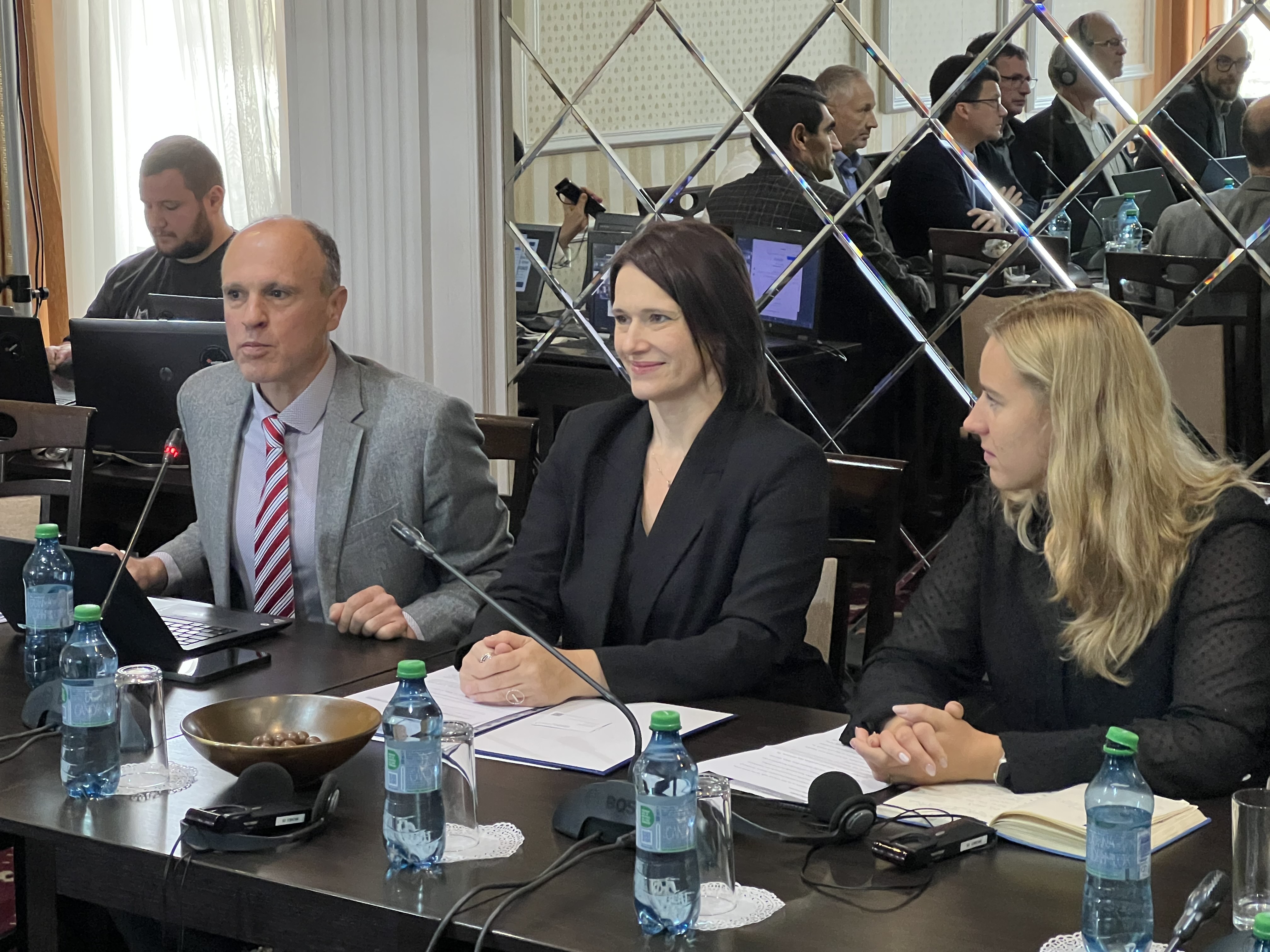Picture: Ministry of Environment of the Republic of Moldova.
Government officials and experts from Armenia, the Republic of Moldova, and Ukraine gathered in Chisinau for a two-day workshop on 15 and 16 October 2025. Together, they launched national coordination platforms (NCPs) for implementing the EU Water Framework Directive (WFD). Being a cornerstone of EU environmental policy, this directive sets a framework to protect and improve water quality and quantity.
The workshop was hosted by the Ministry of Environment of the Republic of Moldova in conjunction with the regional “European Union for Green Recovery East” programme. This event gathers national authorities responsible for water monitoring and management in the participating countries. The participants also include representatives of the European Union Delegation to Moldova, the Environment Agency Austria (UBA), and the International Office for Water (OiEau) of France.
The opening remarks were delivered by Franciska Kirkegaard Flugt, the EU Delegation's representative to the Republic of Moldova, and Aliona Rusnac, the Ministry of Environment's State Secretary. Gerhard Pulfer, the EU4Green Recovery East programme lead, also gave a speech.
Country coordination platforms for cleaner and more resilient water systems
The NCPs will improve cooperation among national institutions producing water-related data and policies. They will bring together ministries, hydrometeorological services, river basin authorities, and research institutions. These platforms will help Armenia, Moldova and Ukraine to plan and implement water monitoring and management systems that alignwith EU standards. They will complement existing National Policy Dialogues on water (NPDs), supported by the European Union over the last decade.
NCPs will include thematic expert groups focusing on specific topics. This thematic approach allows to streamline work across relevant institutions. In such a way, they will offer to users better water-related information and data. This will also help to identify the most effective ways to protect and improve water resources.
Practical Examples from Austria and France
Experts from Austria and France shared practical examples of how coordination mechanisms within the EU’s Water Framework Directive have strengthened data integration. They discussed how these mechanisms have supported evidence-based policymaking, ultimately improving the quality of Europe’s rivers and lakes for the benefit of people and ecosystems.
Advancing water reforms through national commitment and EU support
The EU4Green Recovery East programme builds on earlier EU initiatives. These include EU4Environment - Water and Data (2021-2024) and EUWI+ (2016-2020). These programmes helped modernise water monitoring networks and prepare river basin management plans across the Eastern Partnership countries.
The EU4Green Recovery East programme ensures the sustainability of previous investments in water monitoring and river basin planning. In such a way, the programme enables long-term alignment with the EU environmental legislation and better water quality.
As EU candidate countries, Moldova and Ukraine, actively advance legal and institutional reforms in line with EU standards. Armenia, through its partnership agreement with the EU, has also demonstrated strong commitment to environmental alignment.
Read the article on the Ministry of Environment of the Republic of Moldova website (in Romanian): https://mediu.gov.md/en/node/5505
About EU4Green Recovery East
The EU4Green Recovery East programme (2025–2028) supports the countries of the EU’s Eastern Partnership in their transition towards greener, more resilient economies. With EU funding of EUR 21.3 million, it focuses on five areas: (1) circular economy, (2) water management, (3) legal approximation to EU environmental law, (4) environmental data integration, and (5) transboundary cooperation. Implemented by a consortium led by the Environment Agency Austria (UBA) with OiEau, Expertise France, UNECE, OECD, and UNIDO, the programme builds on a decade of EU investments in the region.
This article was produced with the financial support of the European Union. The contents are the sole responsibility of the EU4Green Recovery East consortium and do not necessarily reflect the views of the European Union or the Governments of the Eastern Partnership countries.


